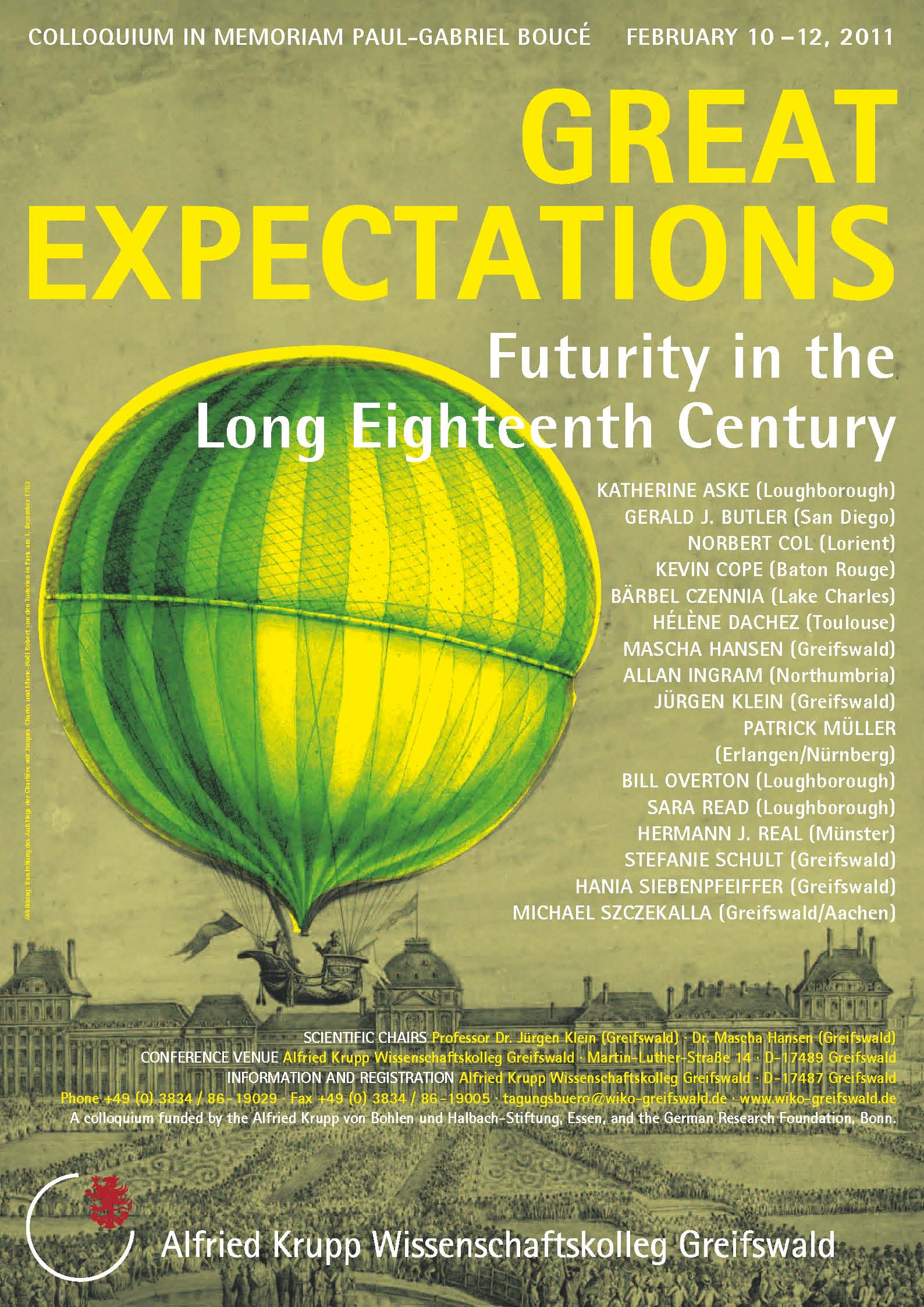The Oxford English Dictionary defines futurity as the future, future events, or a future space of time, but also as posterity or existence after death. According to the examples given, the term was used especially during the late seventeenth up to the nineteenth century: Mankind has always pondered over questions concerning the future and its predictability but it was the scientific discoveries of the seventeenth century that brought about a fundamental reassessment of time and space. Utopian thinking and a strong belief in progress marked the eighteenth century, but were opposed by some authors‘ and philosophers‘ pessimistic view of technological advances and the old conviction of society‘s degeneration.
The Colloquium in Greifswald 2011 is concerned with „Great Expectations. Futurity in the Long Eighteenth Century“ and is intended as an interdisciplinary platform to explore and discuss various aspects of the way that futurity was perceived during the long eighteenth century. Apocalyptic visions, bright hopes, fearful uncertainty of the time to come, but also the utter rejection of all futuristic thinking that is to be found in the literature of the time will be some of the topics of our plenary sessions. Papers are concerned with universal themes such as progress and degeneration as well as small-scale aspects such as individual future(s) and personal (literary) perceptions of futurity.

